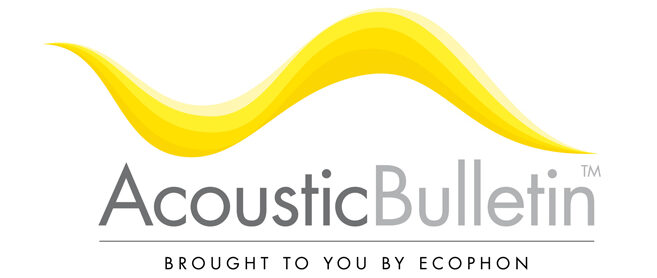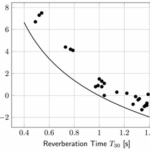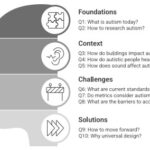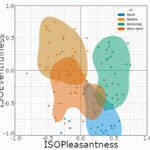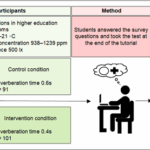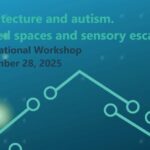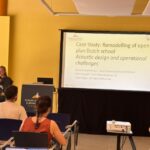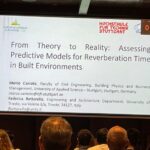This study investigates the acoustic conditions of 26 primary school classrooms during lessons. There was a specific focus on how classroom activity type, student age, and room acoustics shape both speech levels and activity noise. Using Gaussian Mixture Models, the researchers separated teacher and student speech from non-speech activity noise across 93 homogeneous activity periods. […]
research
Autism and auditory needs – An overview for accessible indoor spaces
“Ten questions concerning autism and auditory accessibility in buildings” is a recent paper which takes a deep dive into the topic The comprehensive literature study “Ten questions concerning autism and auditory accessibility in buildings” examines how autistic individuals experience sound within the built environment. The overview highlights major shortcomings in current design standards and offers […]
Vertical absorption in Healthcare
National standards in the Healthcare are lacking In many countries, national standards, regulations, and guidelines in the healthcare sector are lacking and rarely include vertical absorption. One could therefore say that in many cases, building hospitals, elderly care homes, and psychiatric wards is the ‘wild west’ regarding acoustics. We are lucky when new buildings are […]
Planning Ahead for 2026: Acoustic Conferences and Submission Deadlines
Do you know the mix of relief, happiness, and a feeling of power that comes right after submitting a conference paper at the very last minute? While last-minute submissions or trip bookings release adrenaline, planning ahead is still the better strategy – especially when 2026 is packed with excellent acoustics conferences that you might want […]
Acoustic and indoor air quality conditions on sensory and cognitive responses of university students
In this guest post, Matteo Pellegrini post doc researcher at University of Ferrara shares his latest research paper looking into students sensory and cognitive responses to their university acoustic and indoor air quality conditions. Matteo Pellegrini Post doc researcher University of Ferrara, Italy Study introduction Indoor Environmental Quality (IEQ) describes the overall quality of an […]
Improving acoustic comfort at Chelsea and Westminster hospital -The SILENTS study
Ecophon have been part of the Sound in Clinical Environments (SILENTS) study, looking at the effects of noise in the Acute Assessment Unit at Chelsea and Westminster Hospital in London, a project funded by the hospital’s official charity CW+. The aim of the study is to improve the experience of the acoustic environment on a […]
The effect of a reduced reverberation time on students and their performance in higher education classrooms: a between-groups experiment
Research about the effect of reverberation time reduction on students and their performance was carried out by Henk W. Brink. Study Overview This study explored an alteration of the classrooms’ reverberation time (RT). This lead to acoustic conditions meeting quality class A of Dutch guidelines, resulting in a positive effect on students’ perceptions and performance. […]
Architecture and Autism, shared spaces and sensory escape
On Friday, 28 November 2025, the BeSENSHome research group will host the international workshop “Architecture and autism, shared spaces and sensory escape”. Participation in the event at the University of Trieste is possible in person or online (see registration below). The event brings together researchers, designers, educators, and professionals. To explore how built environments can […]
Remodelling of open plan De Werkplaats primary school – acoustic design and operational challenges – School case study 4
Introduction De Werkplaats in Bilthoven, (NL) inspired by Kees Boeke’s educational philosophy, was designed as a progressive primary school with open learning environments. The aim: to stimulate collaboration, autonomy and inclusivity. In practice, however, the open spaces proved to pose considerable acoustic and organisational challenges. This led to a large-scale remodel, during which objective and […]
From Theory to Reality : Assessing Predictive Models for comparison of Reverberation Time results
Guest post by Marco Caniato University of Applied Science HFT of Stuttgart, based on his recent presentation at Forum Acousticum / Euronoise 2025 conference in Málaga. Background Reverberation time (RT) is a fundamental parameter in room acoustics, directly affecting speech intelligibility, comfort, and the overall acoustic quality of a space. Yet, despite decades of research […]
